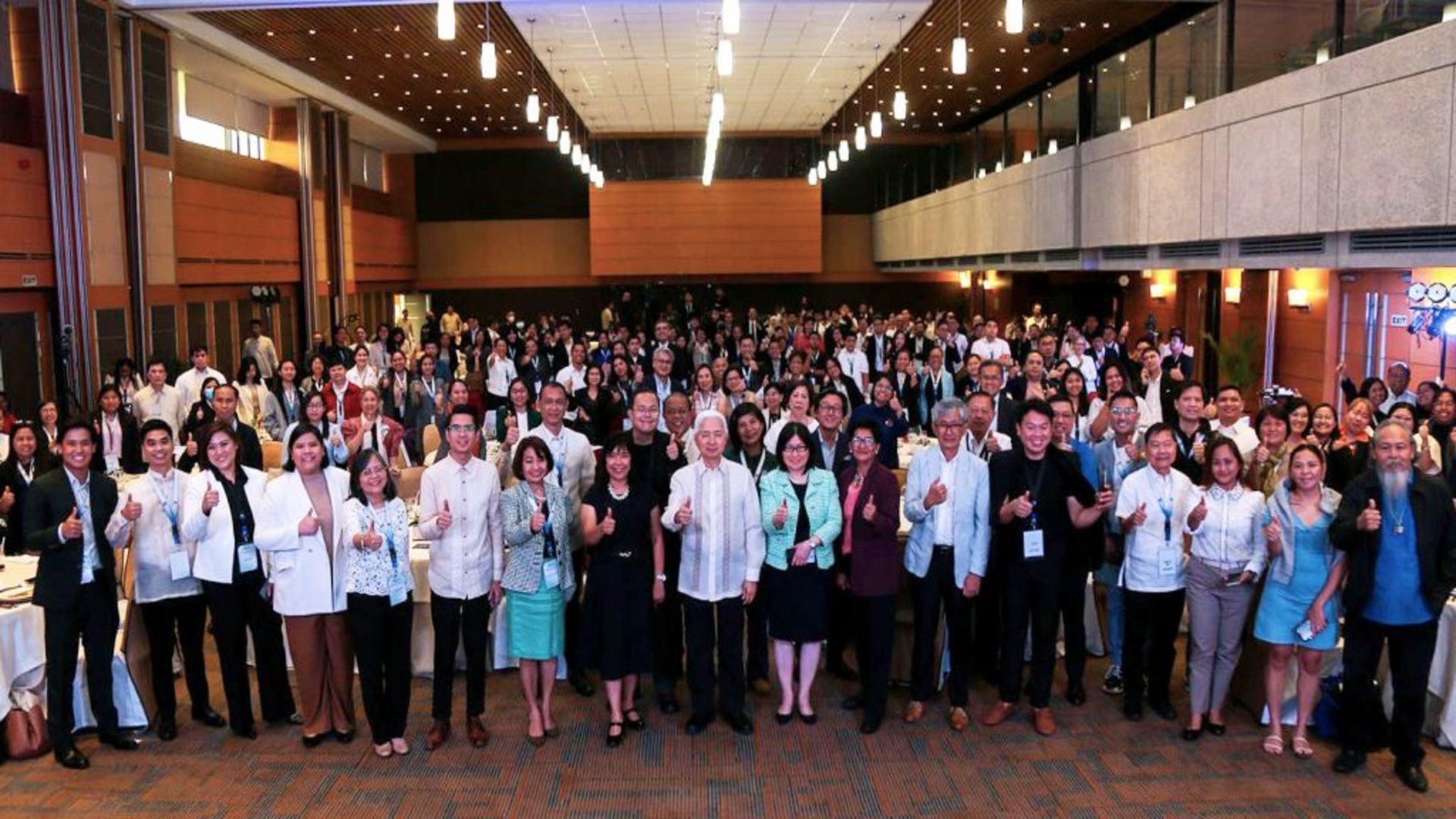The Tatak Pinoy Act envisions extending the sterling Filipino reputation to locally-made products and services. Our objective is to ensure that products bearing the label ‘Made in the Philippines’ stand as symbols of quality, innovation, and sustainability,” said Department of Trade and Industry (DTI) Secretary Fred Pascual at the Tatak Pinoy Act Forum, July 15.
Themed “Tatak Pinoy Act: In Pursuit of Economic Complexity and Globally Competitive Industries,” the forum convened influential leaders across industries to advance the implementation of Republic Act No. 1198, the Tatak Pinoy Act, and unlock its potential in revitalizing the Philippine economy.
“With this, we at the Department of Trade and Industry (DTI) remain at the forefront of our mission to elevate enterprises and entrepreneurs. As part of the DTI’s mission of Angat Negosyo, we develop local industries by promoting and supporting enterprises to build a solid domestic market base and eventually expand into the export market,” Secretary Pascual added.
As the implementing agency of the landmark act, the DTI has designed a comprehensive industrial strategy under the banner, “ANGAT Negosyo.” This strategic approach encompasses fostering a vibrant start-up ecosystem, empowering established businesses to enhance their competitiveness, and strategically targeting key sectors for growth.
Central to this growth strategy is the semiconductor and electronics sector, which accounts for 62% of the country’s exports. The DTI aims to propel this industry from basic assembly and testing into higher-value activities such as integrated circuit design, research and development, and electronics manufacturing services. This strategic shift is underscored by recent investments from industry giants like Dyson and Samsung.
In addition to its strong manufacturing base, the Philippines has established itself as a hub for aerospace innovation. This growth is evident in the presence of industry leaders such as Collins Aerospace, Lufthansa Technik, and Singapore Airlines Engineering. Capitalizing on this foundation, the Tatak Pinoy initiative aims to leverage the Philippines’ skilled workforce, cost-competitive business environment, and investments in defense and airport infrastructure to attract further investments in the aerospace sector.
Beyond aerospace, the Philippines also sets its sights on the burgeoning electric vehicle (EV) market. The government’s strategy encompasses the entire EV ecosystem, from green metals mining and processing to battery production, EV assembly, and charging infrastructure. Leveraging the country’s electronics expertise, the Philippines seeks to become a central hub for automotive electronics manufacturing.
Moreover, the Philippines is expanding beyond manufacturing and hardware, with a flourishing Information Technology and Business Process Management (IT-BPM) sector set for growth. Through the Tatak Pinoy Act, the DTI seeks to upgrade the IT-BPM sector towards higher-value services like engineering service outsourcing, software development, AI and data science, and game development.
Alongside its technological strength, the DTI nurtures a dynamic creative economy, targeting for the Philippines to be Asia’s top creative hub by 2030. The DTI’s strategy focuses on developing four creative industry clusters: entertainment and media, digital creative services, creative goods, and creative tourism.
Innovation and technological progress are integral to these sectors. Acknowledging AI’s pivotal role, the DTI has launched the National AI Strategy Roadmap 2.0 and introduced the Center for AI Research (CAIR). This initiative positions the Philippines as a leader in AI R&D, fostering innovation and attracting investments, particularly in manufacturing.
Complementing CAIR, the DTI is establishing an Industry 4.0 Pilot Factory and Industry 4.0 SME Academy. These initiatives aim to accelerate the adoption of Industry 4.0 technologies such as intelligent robotics, automation, Internet of Things, and smart factory solutions in the manufacturing sector.
In parallel, the DTI is nurturing a vibrant startup ecosystem to drive entrepreneurship and innovation. In partnership with Plug and Play Philippines, the Department launched the National Startup Accelerator Program at the Manila Tech Sphere. This initiative aims to enhance the quality and quantity of local startups, connect them with corporations, and attract investments.
Enhancing its innovation capabilities, the DTI is also collaborating with the Asian Development Bank on the Promoting Research and Innovation to Strengthen Transformation of Industries and Enterprises (PRISTINE) Project. This initiative is designed to accelerate the commercialization of research and development projects, particularly those originating from universities, and facilitate their successful entry into the market.
Building on all these efforts outlined in its industrialization strategy, supported by the Tatak Pinoy Act, the DTI is set to unveil the National Innovation Gateway by 2027.
In line with the Philippine Development Plan 2023-2028, the Tatak Pinoy (Proudly Filipino) Act is a key component of President Ferdinand R. Marcos Jr.’s industrial policy. Enacted last February 26, this focuses on fostering the manufacturing of diverse, sophisticated, and high-quality products and services.
Furthermore, this law underscores the government’s dedication to establish robust partnerships between public and private sectors that drive collaborative progress towards national development goals.
“We recognize that government cannot achieve this vision alone. We need a whole-of-nation approach, the cooperation and active participation of all stakeholders—from the private sector, academe, development partners, and civil society organizations.”



